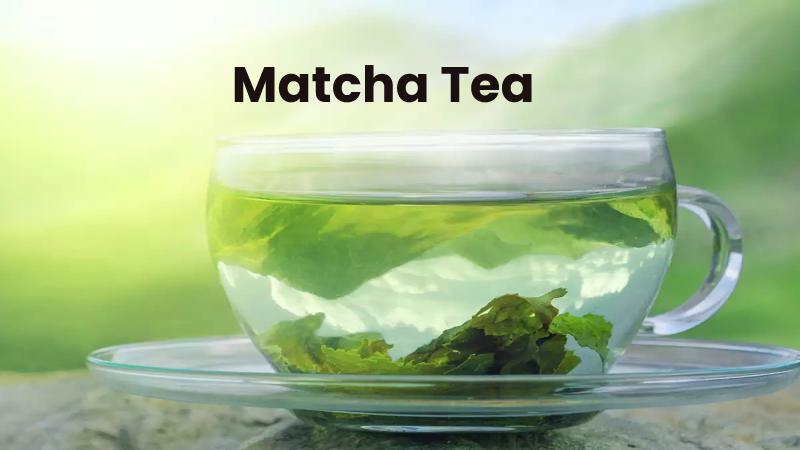Table of Contents
Matcha Tea
Matcha tea is a kind of green tea that remains prepared from the ground Camellia sinensis plant. In recent years it has become very fashionable. It remains served in bars and cafes, in supermarkets, you can buy the powder with which it stands prepared packaged, and in specialized stores, they sell both the ground product and the utensils to prepare it.

However, its origin dates back to ancient times. “It stands used in the Japanese tea ceremony,” says Enrique Grande Ulierte, community pharmacist, food technologist, food scientist, and member of the Nutrition and Digestive group. It presents several distinctive features. “Unlike other types of green tea – highlights Mónica Pascual Arce, professor of Nutrition at CEU Cardenal Herrera University (CEU UCH), in Valencia.
In matcha tea, the plant has been protected from direct sunlight during the weeks before harvesting”. This method of cultivation in the shade “produces certain modifications in its composition, increasing the number of amino acids and chlorophyll and favoring the concentration of aromas “.
The leaves stay harvested by hand, “they are separated from the stems and subjected to a steam bath,” explains Grande. “Then the leaf is separated from the veins and, finally, they remain ground with granite stone mills, ” he adds. The final product “is a powder of a strong green colour.”
What are its Main Components?
The most relevant active components of matcha tea are the following:
- L-theanine.
- Catechins.
- Fibre.
- Vitamin C.
- Selenium.
- Chrome.
- Zinc.
- Magnesium.
- Chlorophyll.
“It is very rich in antioxidants because they stand produced when the plant stands hidden from the sun’s rays”, Grande emphasizes.
The presence of lead has remained detected in the tea plant, as in other vegetables. “In some varieties of tea. Lead concentrations of up to 2.5 micrograms per cup have been found,” says the pharmacist. Who explains that this metal “can reach plants through the soil or their leaves through the environment.”. It occurs, above all, in geographical areas with high industrial pollution.
However, as Pascual highlights, “although in some studies amounts of lead have been observed. In specific tea samples that could be toxic to some people, most studies indicate that the pieces of this metal in the matcha tea consumed usually do not pose any health risk.”.
Does it Have Health Effects?
According to the professor, “various substances such as caffeine, amino acids, and certain polyphenols remain attributed beneficial health effects.” Specifically, catechins, which are the most abundant polyphenols in this type of tea, are present in high quantities and have a decisive antioxidant action. Therefore “they play a fundamental role in preventing the damage produced by free radicals on cellular structures”.
Among the possible benefits associated with the consumption of matcha tea, the prevention of the following diseases remains usually mentioned:
- Cardiovascular diseases.
- Neurodegenerative pathologies.
- Diabetes.
- Obesity.
Some Types of Cancer.
However, the CEU professor points out that “currently there is not enough scientific evidence, so more studies stay needed to provide conclusive results about these health benefits of matcha tea.”
Grande adds another exciting effect: “Research suggests that L-theanine – an amino acid – is beneficial for high levels of stress and anxiety, increasing relaxation without causing drowsiness. These effects have remained found even in the doses that a cup of tea provides”. Also, when combined with caffeine. L-theanine “can help improve cognitive function and increase concentration and alertness”. For this reason, it would be ideal “before a hard day’s work or when an exam remain an actuality prepared”.
How should people Moderate or Avoid Consumption?
SeaTac, it “can leMatcha tea is high in caffeine. According to the representative of to problems such as irritability, insomnia, tachycardia, anxiety, headache, upset stomach, vomiting, and diarrhea.”
The high amount of caffeine contraindicates its consumption in children and recommends to pregnant or lactating women to moderate their intake. For the rest of the adults, two daily cups with 1.5 grams of matcha tea powder are enough to benefit from all its properties without experiencing any adverse effects.
Pascual points out that green tea can decrease iron absorption, so it would not remain recommended: “in people who suffer from anemia and it would not be advisable in patients with stomach ulcers “.
On the other hand, some of its components can reduce certain medications. Such as nadolol, used as an antihypertensive and, in particular, heart disease.
